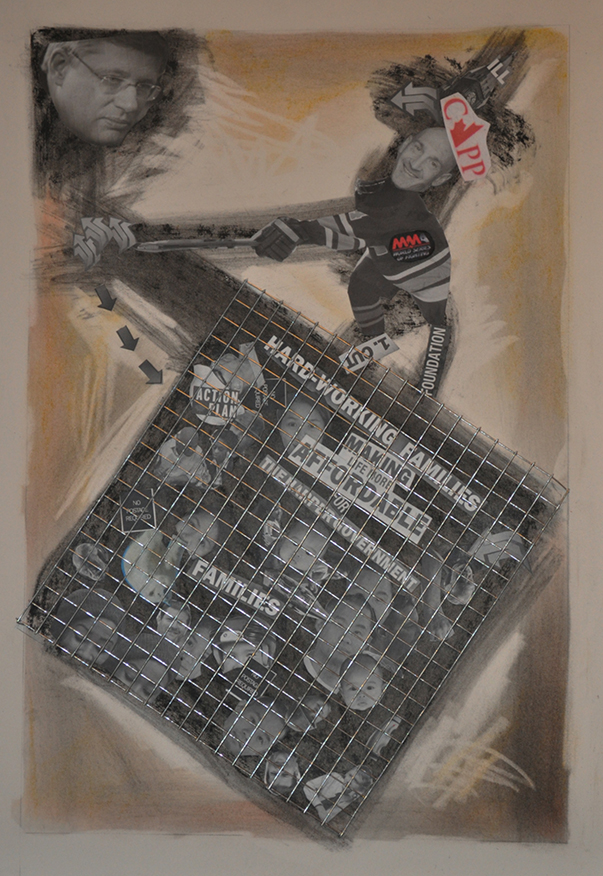Ryan Leef
Member of Parliament for Yukon
Dear Ryan,
In a letter to the Yukon News, March 19, you said, “the Fair Elections Act will ensure citizens are in charge of democracy.”
While Bill C-23 imposes punishments to those who are caught committing electoral crime, you are incorrect to state that it will empower the Commissioner of Canada Elections (CCE). The CCE may no longer compel witnesses to testify. The CCE will be answerable to the Attorney General, which unlike Elections Canada is not an arms length institution. The Act enforces secrecy about investigations undertaken by both the CCE and the Director of Public Prosecution. These cases will be exempt from Access to Information requirements.
This part of the act is called “Independent Commissioner of Canada Elections: Freer Hand.” “Freer Hand” for whom?
You said that the act will “respect the results of democratic elections by ensuring no one individual can reverse the decision of thousands of voters before judicial recourses are exhausted.” When has a fair election ever been over turned in Canada? Who is the “one individual” conservatives are so worried about? Is it a whistle blower, a victim of Pierre Poutine or the Chief Electoral Officer, Marc Mayrand? The Conservative Party has been conducting a slander campaign against Mayrand since the In and Out Elections Canada shenanigans were first exposed. I must remind you that Conservative MP, Peter Penashue committed a crime through electoral expense fiddling. The subsequent re-election in Labrador was completely appropriate.
And where exactly are the “sharper teeth” you talked about? Democracy Watch believes that Bill C-23 failed “to increase the amount of all proposed fines to a level that will actually discourage violations (all the fines proposed in Bill C-23 should be 10 times higher).” There is a far too brief 30day time limit to reporting electoral crimes. Companies conducting robo-calls are not required to provide call lists or scripts to the CRTC. Political parties are not required to provide lists of individuals with access to the voter databases. This last part would have made the discovery and prosecution of Pierre Poutine possible.
To say that there were numerous cases of voter fraud using the vouching system in the last election is untrue. While there were irregularities, Harry Neufield whose 2011 review of electoral law and rule compliance, has not found a single case of voter fraud. Neufield recommended a tightening up of regulations, not voter suppression. The Chief Electoral Officer said that 120,000 voters used the vouching system in the last election.
The voter information card, (VIC) used by 73 per cent of seniors and care home residences in the last election will no longer be applicable. Many First Nations people, rural people, the newly moved, those working away from home, students and homeless people also use VICs.
Where is the substitute for these two systems of voter identification that will make it possible for these people to vote? According to Neufield, hundreds of thousands of people will be disenfranchised under the Unfair Elections Act.
Section 44 of the bill states: “In addition, the party whose candidate received the most votes in the previous election will be able to make recommendations to the returning officer for individuals to occupy the position of central poll supervisor.” Essentially, political parties will get to choose who supervises the polls rather than Elections Canada. How can that be right?
Furthermore, parties, riding associations and candidates may appoint their own auditors.
Non-Canadians may spend up to $500 on political donations before they have to register as residents.
Annual donation limits have been raised to $1,500 per year from $1,200. Candidates own campaign donation limits increased from $1,200 to $5,000. The so-called “small donations” is in fact an increase that will allow the wealthy to buy elections.
Six academics, endorsed by 160 Canadian scholars, wrote a damning essay on the Unfair Elections Act, “While we agree that our electoral system needs some reforms, this bill contains proposals that would seriously damage the fairness and transparency of federal elections and diminish Canadians’ political participation.” Nineteen International scholars writing an open letter in the Globe and Mail said, “We believe that this Act would prove [to] be deeply damaging for electoral integrity within Canada, as well as providing an example which, if emulated elsewhere, may potentially harm international standards of electoral rights.”
To say this bill will “ensure citizens are in charge of democracy” is beyond misleading. It is an insult to our intelligence.
Linda Leon
Cc: Pierre Poutine, c/o the Prime Ministers Office




